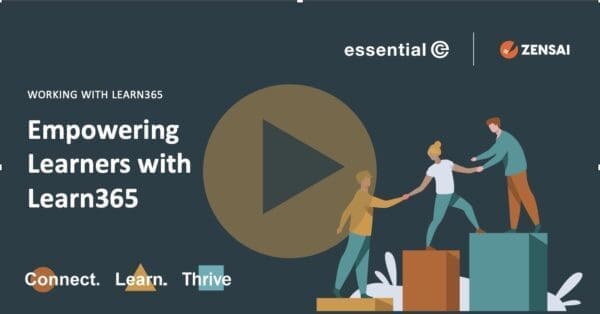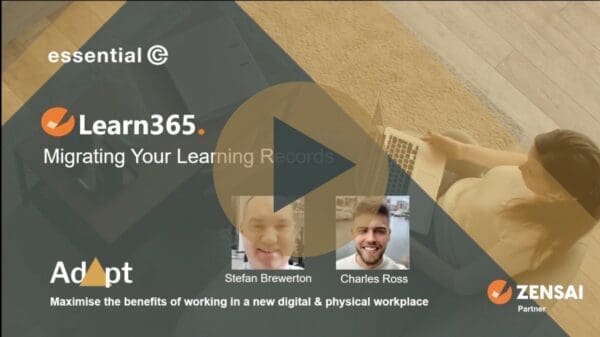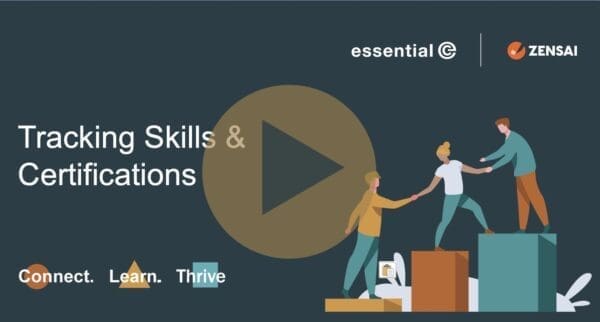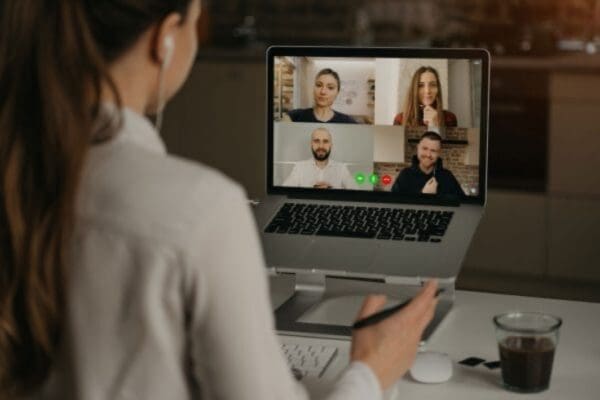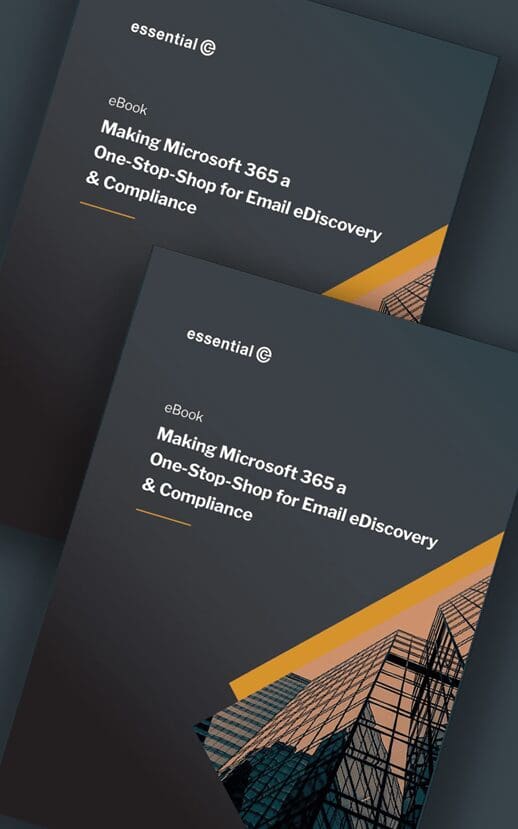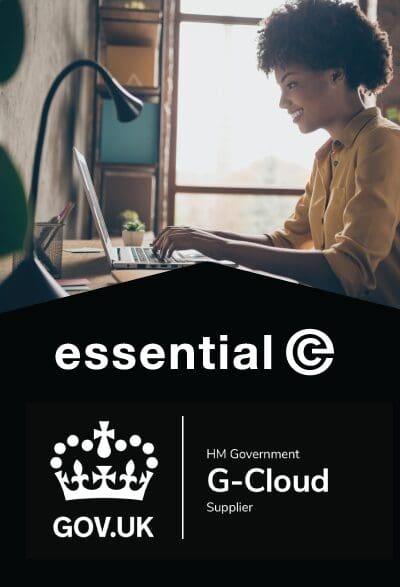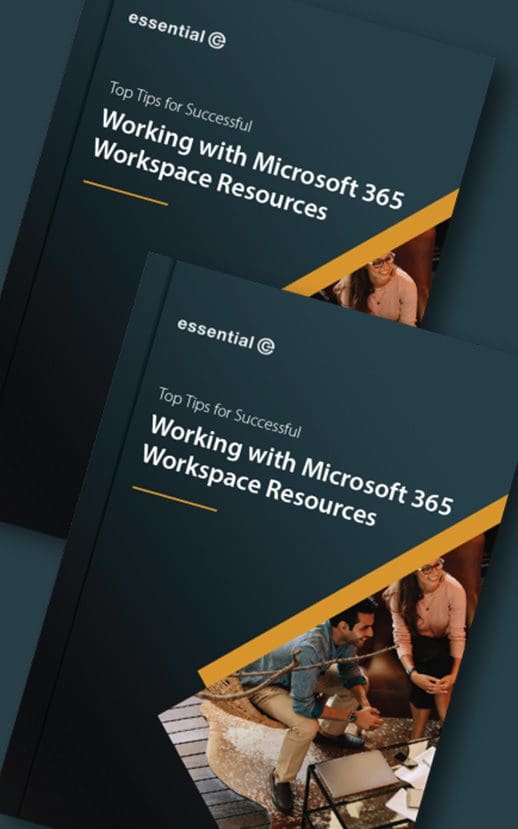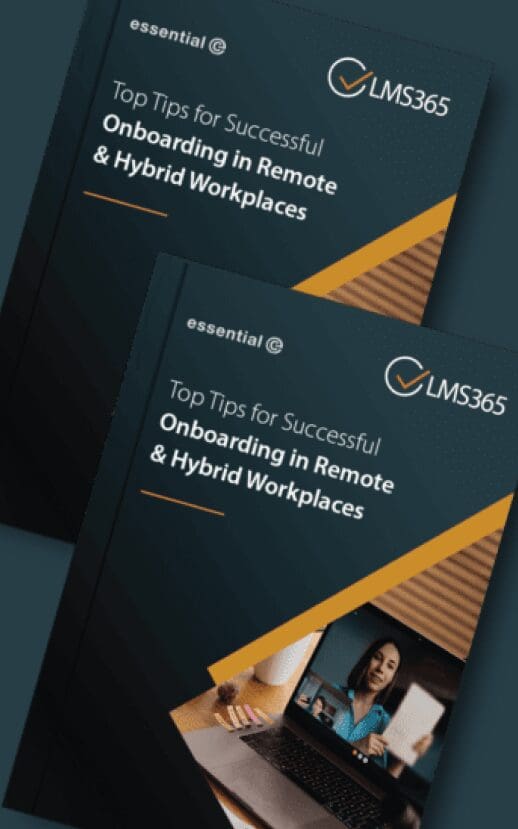Learning Management
Features of an ideal LMS for the NHS & other healthcare bodies
What is an LMS and what does it mean in healthcare?
Learning management systems (LMSs) are software platforms designed to streamline the management, delivery and tracking of learning activity. They are typically used to deliver eLearning content but can also be useful in supporting in-person and hybrid learning.
LMSs are widely available and have features that are applicable to training workforces across many industry sectors.
When looking at an LMS systems for healthcare such as the NHS and other health and social care institutions, there are additional challenges that need to be addressed when it comes to training. These include restricted budgets and manpower, the need to keep certifications up-to-date and continuously measure and monitor, and a very busy, mobile workforce.
In this article we will look at the key features that make an LMS particularly suited to the needs of health and social care bodies.
Learning management solutions built on Microsoft 365
Discover the benefit of an LMS that’s designed for your Microsoft 365 ecosystem.
6 LMS features that are important in healthcare
The following outlines some of the key areas that you should look out for when selecting the best healthcare LMS for use in NHS, and wider health and social care applications:
What key features should you look for in a suitable LMS for health or social care?
1. Learning course & content builders
Enterprises such as the NHS have a strong focus on research and innovation and therefore have many subject matter experts to consider when it comes to learning courses and content builders.
The ideal LMS for healthcare training should make it easy for non-L&D professionals to build training content, courses and entire learning programmes, as well as:
-
- Import existing content in many forms, including basic documents and slide decks, videos, pre-recorded webinars, and podcasts.
- Support existing and new SCORM and AICC packages you wish to use.
- Allow you to build new training content from scratch using ‘industry standard tools’ such as Microsoft Word and PowerPoint.
- Create quizzes and checkpoints to check understanding.
- Tag and categorise training.
- Easily structure content according to training themes and/or learning plans.
2. Tracking learning progress & compliance reporting
Health and social care providers need to refresh their skills and knowledge in a variety of areas, as well as meet their Mandatory and Statutory Training (MaST) compliance. There is also a requirement for healthcare professionals to undertake 35 hours of Continuing Professional Development (CPD) relevant to their scope of practice, over the three years prior to the renewal of their registration.
A good LMS should provide tracking or learning progress and compliance reporting.
Read more about working with our LMS in the NHS shared tenant.
An LMS can help NHS and social care sectors meet their compliance needs by offering:
-
- Scheduled delivery of training, including reminders to renew training certifications at specific time intervals.
- The ability to include assessments, including quizzes and exams.
- Allowing in-person and hybrid training courses to be tracked and assessed alongside eLearning training components.
- Reporting on training progress alongside goals and helping measure shortfalls and improvements.
- Continuing Professional Development (CPD) tracking for learners, which allows them to record and track their participation in CPD activities, such as online and in-person training courses, workshops, and conferences.
- Certificate generation and renewals.
- Managing training records.
- Reporting on learning targets and tracking compliance.
3. Lots of ways to keep learners engaged
Learning – especially when it takes place outside of a classroom environment and is self-paced – can be an isolated and – let’s face it – often boring experience. Keeping learners engaged is challenging.
Your LMS should therefore be easy to work with and access, tailored to individual needs and offer opportunities to engage, encourage and support learners.
The ideal LMS for a varied health/social care audience offers:
-
- Easy access that does not require switching to or logging into a separate learning platform.
- Contextual access that combines training components alongside related work activities.
- Collaboration with others in the same ‘learning community’ using chat and video conferencing tools.
- Leader boards that create an element of competition with co-workers (often referred to as ‘gamification’).
- Customisable dashboards for both ‘internal’ and ‘guest’ learners that showcase training courses, mandatory training and learning pathways that are relevant to their role.
- Access to help, training news, upcoming courses, and other fresh content
- At-a-glance progress updates, including current and completed learning, certificates, and compliance with MaST.
4. Easily managed role-based learning
Being able to tailor the learning experience for each individual or role within an organisation can significantly ease the onboarding process and accelerate learning progress.
Managing these different roles and groups, however, can create a large administrative overhead, especially in organisations like the NHS.
Features within an LMS that can help minimise the administrative overheads involved with role-based learning include:
-
- Enrolment onto role-based learning pathways or learning catalogues according to existing group membership.
- Automatically triggering onboarding when an individual is added to an HR or an enterprise resource directory (e.g., Microsoft Active Directory).
5. Mobile & offline access to learning
Many health and social care trusts use mobile devices in community working for offline access to learning.
Mobile access to training resources increases access to all staff members, including those that work shift patterns and individuals who rarely have access to a dedicated computer screen.
Providing healthcare partners with online learning using Microsoft 365
An LMS should therefore offer mobile access, with features that include:
-
- Offline access to training materials that is not reliant on an internet or mobile connectivity.
- Reminders to start or complete training with push notifications.
- Instant access to learning certificates that can be produced ‘on arrival’ to a new role.
6. Secure LMS access for external learners
Health and social care bodies often need to offer training to an external audience. The right healthcare platform for e learning must therefore be extensible.
For example, NHS Informatics Merseyside uses an LMS to support its own workforce and over 35,000 external personnel in local authorities and clinical commissioning groups, which it manages via a secure portal and registration process.
The ability to share the same LMS platform to deliver training to different audiences reduces both implementation costs and administration time.
A LMS suitable for NHS Trust and Social Care needs should therefore offer comprehensive security and external access management, being able to:
-
- Provide a secure portal via which external individuals can easily self-register using a company or personal email account.
- Offer separate learning content to different agencies.
- Protect from unauthorised access to training content and training records.
- Allow bulk enrolment of guests (e.g., using a spreadsheet of contact details or via an existing CRM).
- Delegate guest access management to those responsible for L&D (without recourse to an IT function).
Learning Management Solutions built on Microsoft 365
Allow our experts to help guide you to select the best LMS for your enterprise



